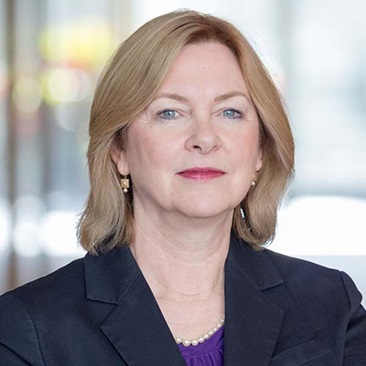How We Grow Older
August 6, 2019
How We Grow Older
At AARP, policy chief Debra Whitman serves the needs of a 50-plus cohort while studying how everyone ages.

Debra Whitman ’96 MA (Econ)/’97 PhD (Econ) knows that, when you turn 50, you’re apt to shun that first letter from AARP. But she wants you to know her organization isn’t about retirement and being old. It’s about aging. Aging, she says, “is the total of all the decisions we make across our lives. There are an infinite number of opportunities to help people age well.”
As chief public policy officer, Whitman helps develop AARP’s policies, helps lead its internal think tank, and oversees research, thought leadership, and global work. It’s a big job. “Some days it takes me to another country, to study innovations in a super-aging society, like Japan,” she says. “Other days I’m back in the U.S., speaking about health care, age-friendly communities, or financial security.”
Often, she works with AARP colleagues on advocacy. One key issue now is helping people build retirement savings; AARP is pushing states to develop savings plans for small business employers. Another issue is reducing prescription drug costs; despite political challenges, she says, “our members and the general public are nearly united on this topic. We are their voice.” Some efforts are remarkably practical; AARP is rolling out a program that trains bank tellers to recognize and stop financial exploitation of their customers. She credits AARP’s dogged attention to its constituency’s needs. “We work incredibly hard to stay true to our mission,” she says.
Whitman, who studied aging issues while at Maxwell, traces the interest to her youth and a grandmother who came to stay. “Many people I know with a career in aging,” she says, “lived with their grandparents at some point, or had a close connection.”
This article appeared in the spring 2019 print edition of Maxwell Perspective © Maxwell School of Syracuse University.
Related News
Commentary

Dec 23, 2024
Research

Dec 19, 2024
Commentary

Dec 18, 2024
